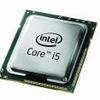Final words and conclusion
Final words and conclusion
And there you have it the full Core i5 3570K review way beyond the initial release, a standalone review this time and if one thing has become clear, these are great processors for the gaming community.
Tweaking and performance
The tweaking potential as history has learned us is good but not great all due the the Intel Heat Spreader. Ivy bridge processors as such overheat quite fast once you pass 1.30 Volts on the processor. We took the 3570K towards 4700 MHz but don't be surprised if you get stuck at 4500 MHz as we already needed 1.375 Volts to make this happen. And the only way to keep that processor stable at these frequencies was to use some sort of extravagant cooling. In our case a liquid cooling kit from NZXT.
Ivy Bridge was the next logical step for Intel to make in terms of their Tick-Tock model. The Tick here is to further improve on the existing architecture, yet on a smaller fabrication process -- the 22nm transition has been completed. Now we have to wait for Haswell later this year.
Despite the heat issues that Ivy bridge has when you increase Voltages, we do have to say that the ease with K model 3570 and 3770 processors is impressive. You'll reach +4.5 GHz real fast. Be advised though, get good cooling to achieve and maintain acceptable temperatures. We noticed that once you pass 1.30 Volts on the processor, heat becomes an issue real fast. The overclocks themselves are definitely real fun though.
Combined with a 77 Watt power draw and lower voltage requirement when overclocking might push you over to the other side. But clock for clock performance, really things are not at all different. If you are coming from much slower processors and are in need of an upgrade then I can recommend Ivy Bridge very much.
My personal favorite will remain that 8-threaded Core i7 3770K for obvious reasons, the Core i5 3570K however I like very much. The processor has all the variables right, despite the fact we had been hoping for a notch more baseline performance.
What about the IGP
Quite honestly, for gaming, you are still looking at little performance for any serious stuff. Flick down and forfeit on image quality and resolution, and things will get better fast. As huge as the overall performance improvement over the last generation IGPs really is, it remains entry-level for gaming. But for mobile platforms the embedded GPU will be quite good.
We also need to separate gaming from the graphics core, realize that it is a multipurpose graphics processor. You'll have no issues with Blu-ray playback, heck it can even deal with 3D TV, post-process your media files and help out with video en/trans and decoding. The GPU is compatible with HDMI 1.4 and Display Port 1.2 next to the regular DSUB and DVI connectors of course. But overall, we really like the embedded GPU for what it is and does, we like to call it a video or media processor though.
The enhanced AVX extension; I did not expect it to perform this well. You have two requirements before you can use the AVX extension on the processor. Make sure your Windows 7 is up-to snuff with the SP1 (required).
Let's talk money
A 3570K will cost you 200 EUR say 220 USD, and that is why this processor has become amongst the most popular processors currently. The L3 cache is only a hint smaller at 6MB and the default clocks are only 200 MHz lower than the 3770K. You do forfeit on hyper-threading though and that showed quite a bit in the synthetics tests. But it's 100 bucks cheaper opposed to that 3770K and gaming wise we doubt you'd ever notice a difference.
Power consumption
The Intel reference board with a Sandy Bridge processor WITHOUT a graphics card idles at roughly 50 Watts. Once we stress the processor 100% on that platform we leveled out at 110~120 Watts. So Ivy Bridge and its chipset are energy friendly, realistically though they are not at all far off from Sandy Bridge. Once you add a dedicated graphics card the dynamic changes of course. Remember, after a BIOS update Ivy Bridge can work fine in your series 6 chipset motherboard as well. Heck, it even works vice versa, a Z77 motherboard will support a Core i7 2700K just as well.
Final Words
 We stated it in the past already, looking at Ivy Bridge in its baseline processor performance we had hoped for a little more over the previous generation. However, the TDP, overclockability, increased IGP performance and then the platform features increase with USB 3.0 and PCIe Gen 3.0 makes the overall infrastructure much more interesting than the previous generation. Since the Core i7 3770K remains pricey the Core i5 3570K is the next best thing to be honest, for any performance enthusiast gamer in the desktop PC platform we can wholeheartedly recommend these processors in combo with a nice Z77 motherboard.
We stated it in the past already, looking at Ivy Bridge in its baseline processor performance we had hoped for a little more over the previous generation. However, the TDP, overclockability, increased IGP performance and then the platform features increase with USB 3.0 and PCIe Gen 3.0 makes the overall infrastructure much more interesting than the previous generation. Since the Core i7 3770K remains pricey the Core i5 3570K is the next best thing to be honest, for any performance enthusiast gamer in the desktop PC platform we can wholeheartedly recommend these processors in combo with a nice Z77 motherboard.
- Handy related downloads:
- Sign up to receive a notice when we publish a new article
- Or go back to Guru3D's front page.

